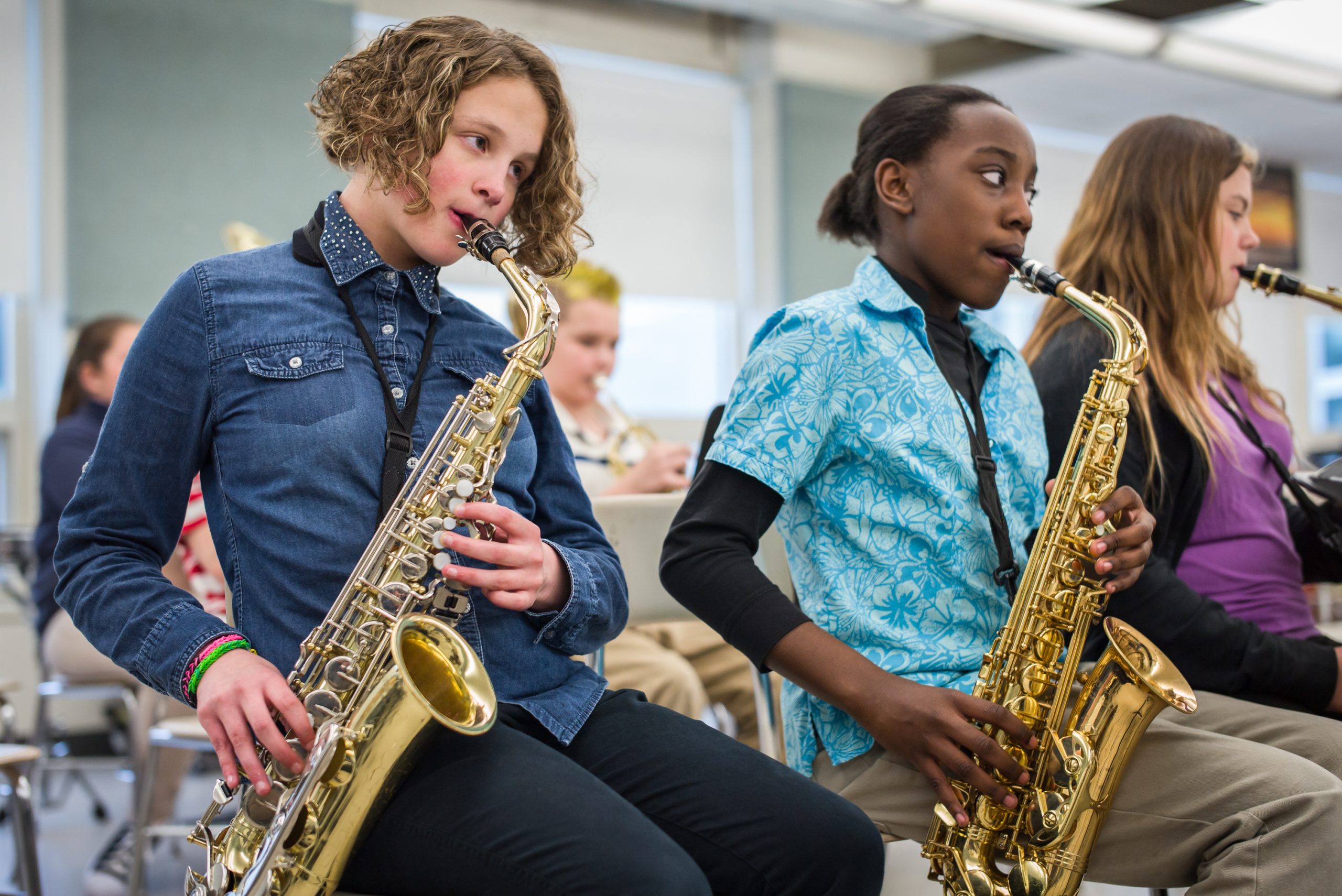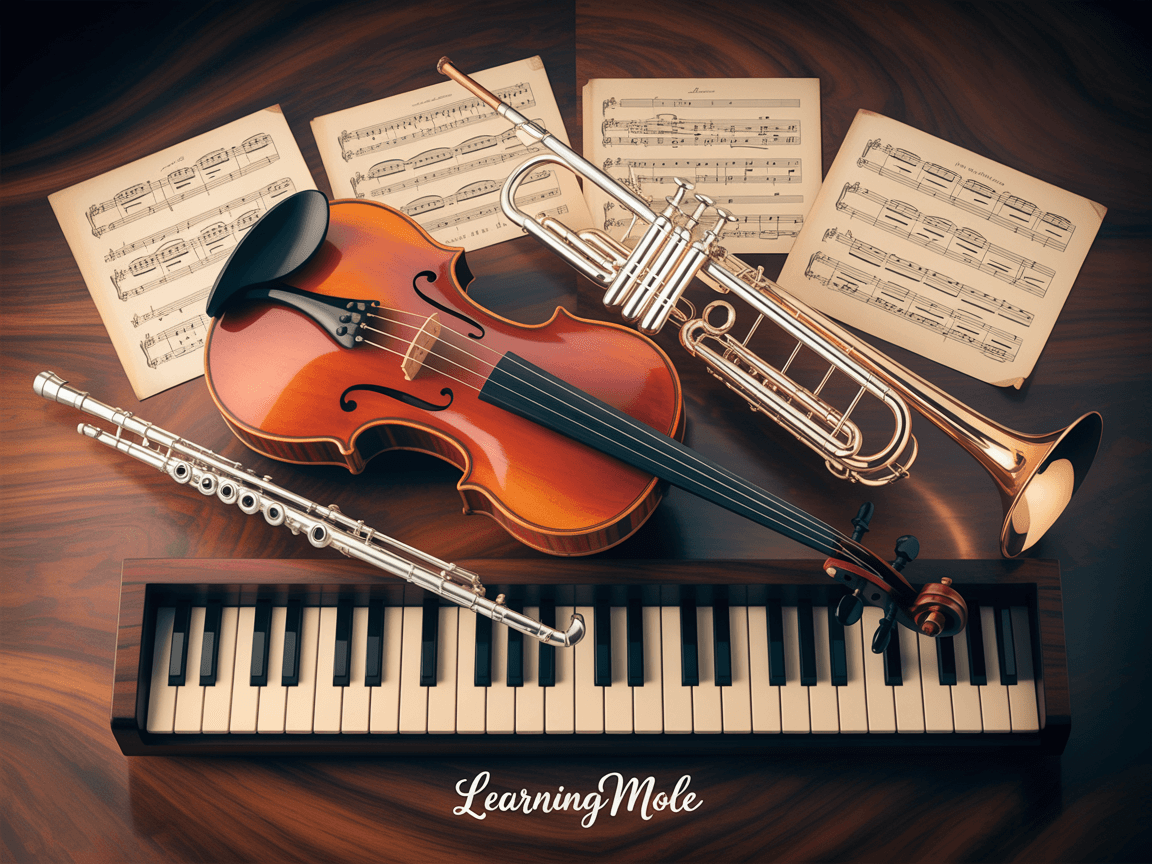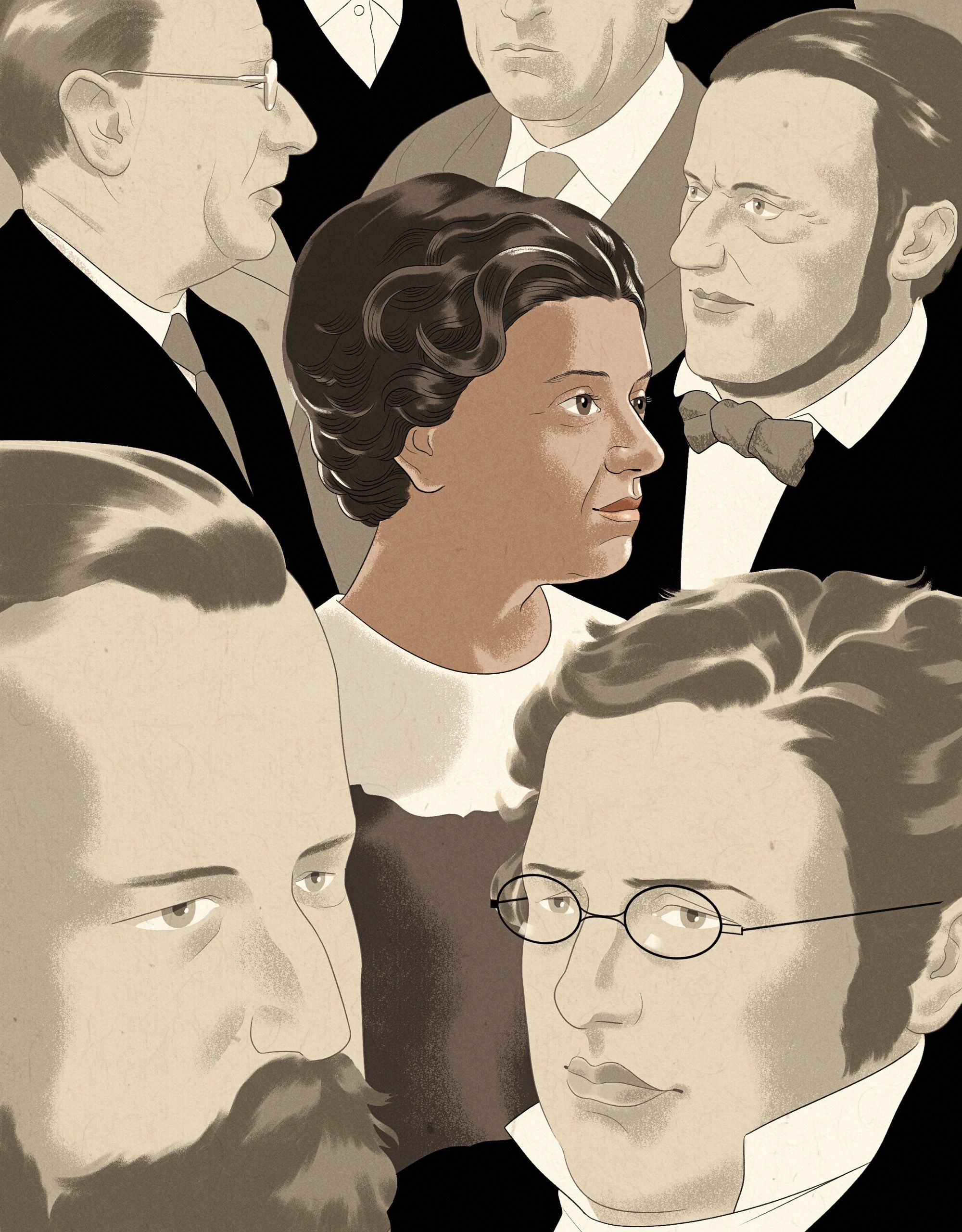The Impact of Music Education on Personal Development and Creativity

Understanding the Impact of Music Education on Personal and Social Development
The role of music education in shaping young minds goes beyond mere enjoyment. It influences pivotal aspects of personal development and fuels creativity in ways that may surprise many. As research continues to unveil the depths of these impacts, it is essential to examine how engaging with music can benefit individuals in profound and multifaceted ways.
- Enhanced Cognitive Skills: Learning music can improve memory, attention, and problem-solving abilities. For instance, studies indicate that students who engage in music training develop superior verbal memory. An example can be found in the work of neuroscientist Dr. Nina Kraus, who discovered that musically trained individuals have enhanced auditory skills, thereby improving their ability to focus in noisy environments.
- Emotional Growth: Participation in music fosters self-expression and emotional understanding. Children learning to play an instrument often explore a wide range of emotions, which helps them develop empathy and emotional intelligence. For example, singing in a choir can allow students to experience the joy of success as a group while also learning how to convey deeper feelings through their musical expressions.
- Social Connections: Collaborative music activities promote teamwork and communication skills. Programs such as band or orchestra create a sense of community among students. When playing together, they must listen to one another, resulting in friendships that extend beyond the classroom. This aspect is particularly crucial in culturally diverse environments, where music serves as a universal language.
In the United States, many schools are enhancing their music programs to cater to a more rounded educational experience. The benefits are becoming increasingly clear, with studies indicating that students involved in music education perform better academically and develop crucial life skills. Research shows that students engaged in music often score higher on standardized tests and demonstrate improved critical thinking skills.
- Academic Improvement: Music education has shown positive correlations with higher grades in various subjects. According to a study published in the Journal of Educational Psychology, students who participated in music classes scored significantly higher in reading and mathematics compared to their peers who did not take music.
- Increased Discipline: The structured nature of learning an instrument teaches students the value of persistence. Mastering an instrument requires regular practice and focus, which cultivates discipline. Musical training conditions students to set long-term goals and work methodically towards achieving them.
- Creativity Boost: Engaging with music encourages innovative thought processes and originality. For instance, the improvisational aspects of jazz music not only develop artistic skills but also enhance cognitive flexibility, which is vital in problem-solving and entrepreneurship.
By delving deep into the aspects of music education, we begin to unravel its profound effects on both personal and creative development. Programs nationwide, including those in public schools, community centers, and after-school initiatives, serve as prime examples of how essential music education is for nurturing well-rounded individuals. What lies ahead is an exploration filled with real-life stories and research findings, inviting you to appreciate the significant role music plays in shaping our future generations.
DON’T MISS: Click here to delve deeper
The Transformative Power of Music Education
Music education serves as a springboard for personal transformation, fostering crucial skills that extend far beyond the classroom. By engaging in music, students unlock a variety of benefits that enrich their lives while simultaneously boosting their creativity. Understanding these multifaceted gains can help educators, parents, and policymakers prioritize music education in schools across the United States.
- Boosting Academic Performance: Numerous studies highlight the connection between music education and enhanced academic achievement. For example, a landmark study conducted by researchers at the University of Kansas found that students involved in music programs performed better in mathematics and reading comprehension tests. This correlation suggests that music education encourages cognitive skills essential for academic success.
- Fostering Emotional Resilience: The journey of learning to play an instrument or participate in a choir significantly contributes to emotional resilience. When students face challenges, such as mastering a difficult piece, they learn to cope with frustration and develop a growth mindset. This emotional fortitude benefits them in various life situations, helping to cultivate a more adaptable and positive individual.
- Cultivating Collaboration: Music education frequently promotes teamwork among students. Being part of a band or choir instills a sense of shared responsibility and camaraderie. Each member must communicate effectively and coordinate with others to create harmony. This experience translates into improved collaboration skills in other areas of students’ lives, including group projects in academic settings and later in their careers.
As a tangible example, many U.S. schools offer programs that integrate music with STEM (science, technology, engineering, and mathematics) curricula. These initiatives, often referred to as STEAM (with ‘A’ representing arts), emphasize how music can enhance problem-solving capabilities and inspire innovation. By merging these disciplines, students not only acquire vital knowledge but also develop a more creative approach to learning and discovery.
- Enhancing Spatial-Temporal Skills: Engaging with music has been shown to improve spatial-temporal reasoning, a skill vital for success in fields ranging from mathematics to engineering. According to research by the Music Research Institute, children who participate in music training exhibited notable improvements in their ability to visualize and manipulate objects in space.
- Encouraging Cultural Awareness: Music serves as a reflection of cultural diversity and heritage. By studying various musical styles and genres, students gain insight into different cultures, fostering appreciation and understanding that is critical in today’s global society. This awareness contributes to broader worldviews, empowering students to engage more thoughtfully and inclusively with others.
In sum, the impact of music education on personal development and creativity cannot be overstated. By focusing on not only the academic benefits but also the emotional, social, and cognitive improvements that music training fosters, we can gain a deeper appreciation for its role in shaping well-rounded individuals. The next sections will delve into specific success stories and new research findings that further illuminate the importance of music in education.
The Impact of Music Education on Personal Development and Creativity
Music education plays a pivotal role in enhancing personal development and creativity among individuals of all ages. This aspect goes beyond merely learning to play an instrument or sing; it encompasses a variety of benefits that shape one’s character and cognitive abilities.
One of the most significant advantages of music education is its effect on critical thinking and problem-solving skills. Engaging with music theory and practice compels students to analyze and comprehend complex concepts, fostering an environment where creativity can flourish.
Additionally, involvement in music has been shown to enhance emotional intelligence. Students learn to express themselves emotionally, recognize feelings in others, and develop empathy — skills that are invaluable in personal relationships and professional environments.
Moreover, music education provides a unique platform for students to gain confidence. Performing in front of an audience can be a daunting experience, yet it equips students with the tools to confront fear and anxiety. This sense of accomplishment transfers to other areas of life, motivating individuals to tackle challenges head-on.
Beyond emotional and cognitive development, music education contributes to improved social skills. Collaborative projects, like band or choir, require teamwork, communication, and collective responsibility. These interactions significantly foster a sense of community and belonging, essential for personal growth.
Furthermore, the discipline required to master a musical instrument enhances time management and organizational skills. Students learn to balance practice with other commitments, developing a strong work ethic that can lead to greater success in academic and professional pursuits.
In light of these benefits, many educators advocate for a robust music curriculum in schools. The integration of music education provides a holistic approach to learning that nurtures creativity while laying a foundational framework for personal development. To delve deeper into how music education can transform lives, consider exploring the potential it holds for yourself or a young learner around you.
| Advantage | Impact |
|---|---|
| Critical Thinking | Enhances problem-solving abilities and analytical skills. |
| Emotional Intelligence | Promotes empathy and emotional expression in various contexts. |
| Confidence Building | Fosters self-assurance through performance experience. |
| Social Skills | Encourages collaboration and communication within groups. |
| Discipline | Teaches time management and commitment through practice. |
DIVE DEEPER: Click here to uncover more about landscape photography
Creativity Unleashed Through Harmony
The influence of music education is not merely an academic endeavor; it plays a pivotal role in enhancing creativity, which is essential for personal development. The intertwining of music with innovation nurtures original thought and inspires students to explore new avenues of expression.
- Encouraging Creative Problem-Solving: Music education pushes students to think outside of conventional boundaries. Engaging with improvisation, for instance, requires musicians to make spontaneous creative decisions, honing their ability to tackle problems in unique ways. According to a report from the Arts Education Partnership, students who participate in music composition activities demonstrate greater proficiency in innovative thinking, seeing links where others may not.
- Expanding Imagination: The process of learning music encourages students to utilize their imagination. From conceptualizing new pieces to interpreting existing works, music education fosters a fertile ground for creative imaginations to flourish. A study by the University of California revealed that students involved in creative music-making showed enhanced abilities in divergent thinking—a critical skill for creativity that involves generating multiple solutions to a problem.
Moreover, the emotional and cognitive benefits derived from music learning significantly impact students’ willingness to take creative risks. In environments where exploration is encouraged, children feel empowered to experiment and express themselves freely, a sentiment echoed in multiple reports, including a survey from the National Endowment for the Arts, which stated that musical engagement corresponds with a higher likelihood of creative risk-taking.
Nurturing a Lifelong Appreciation for the Arts
Music education also instills a profound appreciation for the arts that can shape personal development well into adulthood. By exposing students to a variety of musical styles, they cultivate a sense of curiosity and openness toward different forms of creativity. This journey not only enhances their understanding of music but also encourages exploration in other artistic domains such as visual arts, dance, and theater.
- Building Personal Identity: For many students, music serves as a vital means of self-expression. Through learning and performing, they create a personal identity infused with their artistic prowess. Writing their own songs or interpreting their favorite pieces allows them to convey emotions and experiences, helping them articulate their thoughts more clearly in other aspects of their life.
- Fostering Discipline and Perseverance: The road to musical proficiency demands discipline and dedication. Students learn to practice regularly and strive for improvement, skills that serve them well beyond their music studies. These traits translate into perseverance in other endeavors, whether academic or personal, as they come to understand the value of hard work and commitment in achieving success.
In classrooms across America, educators are beginning to harness these benefits actively by integrating music education with comprehensive programs designed to foster innovation and critical thinking. Programs such as Project Zero from Harvard stimulate inquiry-based learning through music and other arts, highlighting the expansive potential that music has to bolster personal development and fuel creativity.
As students explore the interconnectedness of music and various scientific disciplines, they begin to understand that creativity is not confined to one domain. Such revelations can lead to a more versatile approach to learning, enabling them to navigate the complexities of contemporary society with a blend of artistry and practicality.
DIVE DEEPER: Click here to discover the journey of crafting as creative therapy
Conclusion: The Transformative Power of Music Education
In summary, music education serves as a catalyst for personal development and creativity, shaping not only the artistic capabilities of students but also their overall character and problem-solving skills. As we have explored, engagement with music fosters creative thinking and encourages imaginative exploration, leading students to break free from conventional thinking. The skills cultivated in the classroom—discipline, perseverance, and emotional expression—transcend the boundaries of music, influencing various aspects of life and academia.
Furthermore, the significance of music education extends to constructing personal identities and expanding cultural appreciation, thereby enriching students’ lives. As they learn to navigate the intricacies of musical expression, they also develop a profound respect for the arts, which can inspire a lifelong journey of creative exploration. This understanding is reinforced by various education programs across the United States that blend music with interdisciplinary learning, paving the way for holistic education.
As we continue to recognize and advocate for the role of music education in schools, it becomes increasingly important to champion its inclusion in curricula nationwide. Investing in music programs not only enriches individual lives but also nurtures a more innovative and empathetic society, equipped to meet the challenges of the future. Ultimately, the impact of music education on personal development and creativity cannot be overstated; it remains a vital component of a well-rounded education that deserves our unwavering support and commitment.


